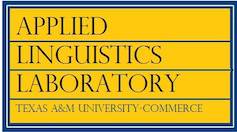Recensione: Cox, Sarah (2023). Meeting the needs of reunited refugee families. An ecological, multilingual approach to language learning. Multilingual Matters.
DOI:
https://doi.org/10.21283/2376905X.1.11.1.3122Keywords:
TRANSLANGUAGING, MULTILINGUALISM, ECOLOGICAL APPROACH, REFUGEES, SCOTLANDAbstract
Meeting the Needs of Reunited Refugee Families: An Ecological, Multilingual Approach to Language Learning" by Sarah Cox analyses the situation of refugees in Scotland, with a focus on newly arrived women. Drawing from the experience of two previous case studies in Wales and Germany, the research explores the linguistic and practical challenges faced by newly arrived refugee women in the UK following family reunification. The volume demonstrates how the combination of an ecological, decolonial approach, and translanguaging strategies can be effective and appreciated by refugee families in their early days in a new country. The volume constitutes an exploration of what it truly means to start from "day one," delving into integration, language learning, and solidarity in a comprehensive and engaging manner
References
Blackledge, Adrian, & Creese, Angela. (2010). Multilingualism: A critical perspective. Continuum.
García, Ofelia, & Wei, Li (2014). Translanguaging. language, bilingualism and education. Palgrave Pivot.
Haugen, Einar (1972). The ecology of language: Essays by Einar Haugen. Stanford University Press.
Phipps, Alison (2019). Decolonising Multilingualism: Struggles to decreate. Multilingual Matters.
Scottish Government (2018). New Scots: refugee integration strategy.
https://www.gov.scot/publications/new-scots-refugee-integration-strategy-2018-2022/.
Smith, Linda, Tuhiwai (1999). Decolonizing methodologies: Research and indigenous peoples. Zed Books Limited.
Downloads
Published
How to Cite
License
Copyright (c) 2024 Francesca Romana Branciari

This work is licensed under a Creative Commons Attribution 4.0 International License.


